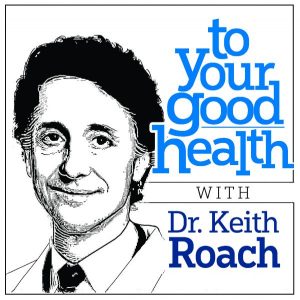TO YOUR GOOD HEALTH: Diet is a powerful tool to improve heart health
By Dr. Keith Roach — March 28, 2022 DEAR DR. ROACH: I have a strong history of premature heart disease in my family, and I have been having some unpleasant side effects of blood pressure medicine. I decided to try a completely plant-based diet: grains, vegetables, legumes, fruit, seeds and nuts.
DEAR DR. ROACH: I have a strong history of premature heart disease in my family, and I have been having some unpleasant side effects of blood pressure medicine. I decided to try a completely plant-based diet: grains, vegetables, legumes, fruit, seeds and nuts.
After about a month on the new diet, my total cholesterol dropped 44 points to 159, and the other numbers went from borderline to normal, as measured by my cardiologist. My blood pressure, which was often high in the mornings (typically 150+/90), was 118/68 this morning. I’ve only lost about 5 pounds in the past couple of months, and I’m probably still 8-10 pounds overweight.
I am pleased with the results, but why didn’t any of my doctors recommend this? — J.S.B.
ANSWER: Diet is a powerful tool for improving overall health, especially heart health. I believe it is underemphasized by most physicians.
Changing from a meat-based diet to a mostly plant-based diet often prompts improvements in blood pressure, cholesterol and weight. Your results are better than most, but by no means unheard of. You haven’t said how you feel, but many people feel more energetic as well. Many others are able to come off of some (occasionally all) of their medications, which of course reduces side effects.
Why don’t physicians recommend it? I think it’s a combination of reasons. Some doctors don’t realize how powerful the effects of dietary change can be. A good deal of patients are highly resistant to making changes, so physicians are used to their dietary advice failing. Also, taking the time to get an accurate diet history is hard, personalizing dietary advice is harder, and writing a prescription is easy.
It is not necessary to have a 100 percent vegan diet like yours to experience a benefit. A mostly plant-based diet has substantial benefits. It’s easier for some people to make incremental changes.
***
DEAR DR. ROACH: You wrote that you had seen doctors and nurses with “DNR” tattooed on their chests. Were they still on the job, or retired and not in good health? — P.
ANSWER: The two health care professionals I recall with these tattoos were young and healthy. Both of them watched many people undergo long, painful, expensive hospital courses that ended in a death without dignity. It was in response to these bad outcomes that they made a request against attempts at cardiopulmonary resuscitation with the “Do Not Resuscitate” tattoos.
I disagree with the tattoo. It is not considered a legal document, and it is worthwhile to make a legally binding document. I recommend www.agingwithdignity.org and www.caringinfo.org as good places to start. There are many others, including attorneys who specialize in end-of-life issues.
There are many cases in which an attempt at resuscitation is appropriate! A person who has a heart attack can be revived with CPR and have an excellent quality of life for years thereafter. DNR orders are most appropriate for people with chronic medical illnesses, and most legal documents specify whether the order is applicable only in the event of an illness judged likely to be terminal. It’s important to have a living will and a health care proxy identified long before there is a crisis. It is critical for a person to discuss their wishes with their proxy.
Dr. Roach regrets that he is unable to answer individual questions, but will incorporate them in the column whenever possible. Readers may email questions to ToYourGoodHealth@med.cornell.edu.
© 2022 North America Synd., Inc.
All Rights Reserved
TO YOUR GOOD HEALTH: Yellow lenses to rescue for macular degeneration
TO YOUR GOOD HEALTH: Too much fruit juice can worsen diabetes







